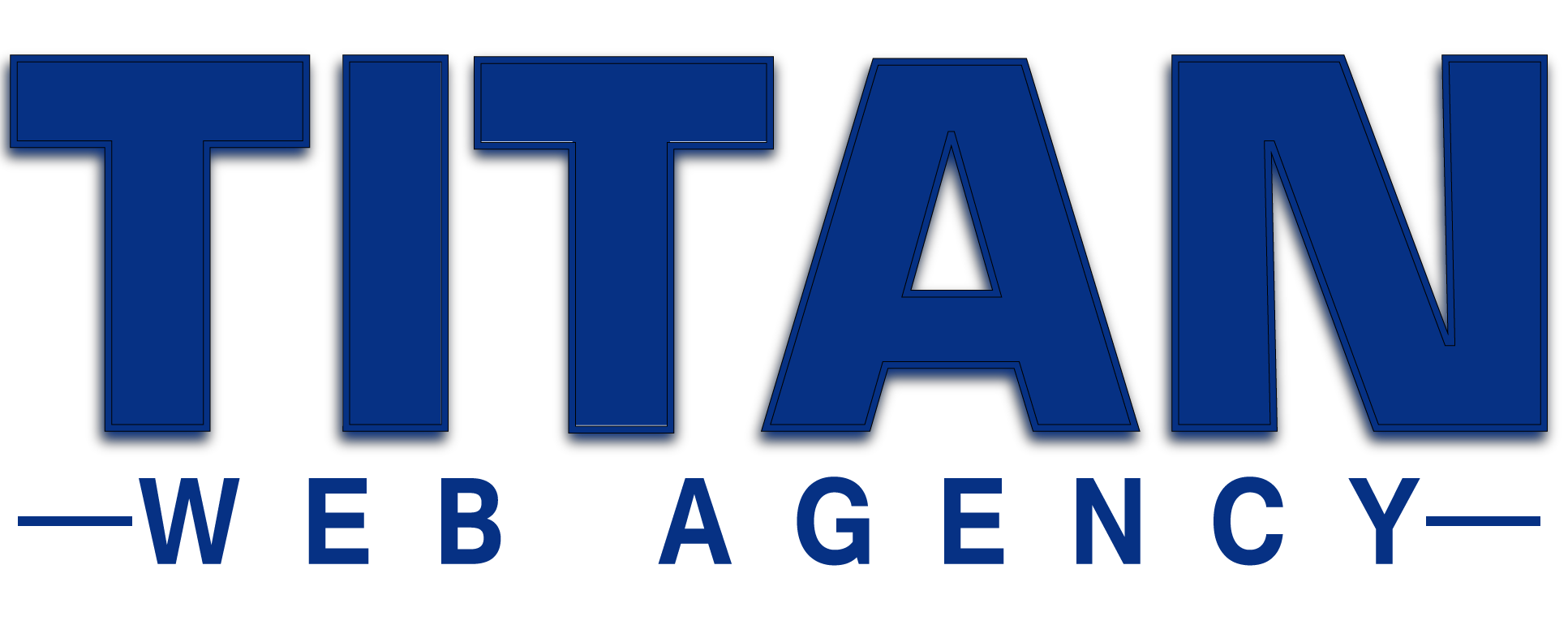Overdue Dental Accounts & How to Maximize Practice Collections [Sample Collection Letter Template + Phone Script]

While many dental patients have some form of dental insurance, many do not. It’s common for dental practices to offer payment plans to patients who need them. While it’s beneficial to offer patients some flexibility in how they pay, the result may be a collection of past-due invoices. As you know, a lack of incoming payments can cause issues with cash flow.
At Titan Web Agency, we work with dental practices every day to help them achieve their growth objectives and the issue of non-payment often comes up in the course of our discussions. We’ve created this guide to help you understand why overdue dental accounts receivable are a problem and provide some collection pointers.
Dental Collection Statistics
Before we talk about why collecting overdue dental accounts should be a priority, here are some statistics to illustrate the state of dental collections.
- The average dental practice is losing 9% of its revenue to uncollected bills.
- 88% of dentists are concerned about patients’ ability to pay for services.
- The average dental office collection rate is 91%, but experts say it should be closer to 98% for good financial health.
- On average, 18% of dental invoices are 90 or more days past due.
- Dental offices only collect 26.6% of invoices that are a year or more past due.
- Past-due accounts lose 7% of their face value after 90 days.
The issue with some of these statistics is that dentists sometimes think that a 90% or 91% collection rate is sufficient when, in fact, they’re losing money daily.
Why Are Overdue Dental Accounts Receivable a Problem?
Overdue dental accounts receivable (AR) are a problem that every practice faces, but let’s talk about why solving this issue should be a priority.
As we noted above, dentists lose approximately 9% of their revenue to uncollected bills. That might not seem like much, but let’s look at a scenario that might illustrate why you shouldn’t ignore those uncollected bills.
Overdue invoices may also impact the valuation of your practice because unpaid invoices are a liability. In other words, overdue AR can impact every aspect of your practice, including your ability to retain staff, market to new patients, and sell your practice.
Ways to Reduce Dental Accounts Receivable
The thought of making collection calls might not be a pleasant one, but the good news is that there are multiple things you can do to minimize overdue accounts receivable before you ever send an invoice.
Perform a Proper Insurance Verification
The first step is taking the time to verify each patient’s insurance. If a patient has any form of dental insurance, you should get their information and verify their coverage before providing treatment.
The benefit of doing so is that your office will have a clear understanding of what is and isn’t covered and can frame your conversations about payment accordingly.
Provide Out-of-Pocket Cost Estimates
You should provide each patient with an estimate of their out-of-pocket expenses based on your insurance verification. You’ll have relevant information, including the patient’s deductible, copays, and covered percentages.
It may be helpful to break down expenses based on coverage. For example, you have a deductible of X, and after that, your insurance will pay X% of the cost.
Put Financial Guidelines in Writing
We strongly recommend putting your financial guidelines in writing to make sure that your staff understands how you expect things to work regarding payments and invoices.
Your financial guidelines should lay out the procedures to send invoices to patients as well as how and when to follow up with them.
Create an In-House Dental Membership Plan
In-house dental membership plans can do a lot to help you avoid past-due invoices because patients make a regular monthly payment that covers some of the most common dental services, such as cleanings and X-rays.
While not every patient will find a membership plan appealing, it may be easier for many to spread out their payments over a year.
Make Sure Patients Understand Their Financial Responsibilities Before Treatment
Part of the reason we recommend providing patients with an out-of-pocket estimate is that it minimizes the risk that they will be blindsided by the amount they owe.
We suggest explaining your financial guidelines to patients and explaining what will happen if their invoice becomes past due, including when they should expect collection calls.
Offer Incentives for Up-Front Payment
You can help to minimize past due accounts by offering your patients incentives for making an up-front payment.
For example, some dentists offer patients a discount on the bill, or they might offer a free service such as tooth whitening to incentivize patients to pay quickly.
How to Increase Your Dental Practice Collection Rate
Here are some ways to increase your dental practice collection rate if you have past-due invoices.
Engage in Friendly and Persistent Follow-Up Communication
The most effective way to increase your collection rate is to engage in persistent, friendly communication with patients. Consistency is crucial because it sends the message that you will continue to reach out and makes it difficult for patients to avoid you.
We suggest reaching out with an initial call when the invoice is five days past due and then reaching out at regular intervals thereafter. The first contact should be a phone call, and you should follow up with a letter when the invoice is 15 days past due. After that, contact should happen (at minimum) every thirty days. At least one of the follow-ups should be a phone call. You can use a script for the call to ensure that the proper information is communicated.
We also want to note that it’s extremely important to make sure that anybody handling collections is up to date on state and federal guidelines and regulations related to debt collection. For example, under federal law, the Fair Debt Collection Practices Act prohibits collection calls before 8 AM or after 9 PM. State laws vary, so be sure you understand what’s allowed in your state before making calls.
Train and Involve Your Team in the Collection Effort
On a related note, you’ll need to train anybody who will be involved in collection efforts. The training should include information about the tone to use on the phone and provide scripts and templates to be used for both verbal and written communication.
We suggest some role-playing to make it easier for your staff to prepare themselves for an array of potential collection scenarios. While most patients are likely to be polite and calm, some may be defensive. Proper preparation will ensure that your staff understands their obligations and are prepared to deal with any situation that arises.
Offer Flexible Payment Options
Flexible payments can do a lot to make a patient’s debt feel manageable and take the pressure off having to pay it all at once. While not appropriate for every situation, offering a flexible payment plan may be the best way to increase your collection rate in some cases.
We suggest creating a set of guidelines for your staff to use when setting up flexible payment plans. You don’t want your staff suggesting payment plans on the fly. For example, you might empower your staff to offer to split a balance into three or more payments due once a month if the patient indicates they can’t pay the entire balance right away.
Send Billing Reminders on Patients’ Favorite Channels
Billing reminders may be handled with a phone call or sent via email or text. In many cases, dental practices use a management system that can send automated, multi-channel collection notices.
The goal should be to engage with patients where they are most comfortable and most likely to be responsive. When you treat a patient who won’t be paying up front or isn’t insured, your staff should ask where they prefer to receive follow-up communication. Asking for a preference gives patients a say in how you communicate and may increase the likelihood that they’ll respond when you reach out to them.
Offer Electronic Billing
Many of today’s patients prefer to make payments online rather than calling or sending a check, so you can increase your collections by making payments easy.
One of the best ways to accomplish this task is to choose dental practice management software with a patient portal that allows patients to pay online. Alternatively, you could integrate a payment system on your website to make it easy for patients to pay you.
Set Up Shorter Billing Cycles
It’s important not to forget that there’s a psychological aspect to collecting past-due balances. One way to accommodate patients who may feel overwhelmed is by setting up shorter billing cycles for your payment plans.
For example, a patient may feel less overwhelmed making weekly payments of $25 than a single monthly payment of $100.
Should You Use a Dental Office Collection Agency?
What happens when you have exhausted every resource and still can’t collect on a past-due invoice? One option is to hire a dental collection agency. Here are some pros and cons to consider:
- Collection agencies have a lot of experience collecting debt and may be more effective than your office staff with difficult cases.
- Dental collection agencies are effective and do a good job of collecting past-due bills.
- When an account is seriously past due, your staff may be burned out, and hiring an agency can provide them with some relief.
- Dental collection agencies charge a percentage of the amount collected, and the expenses can add up quickly if you use them too much.
- Turning a patient’s bill over to a collection agency may distress patients and may even lead to them leaving your practice.
- Collection agencies aren’t always successful, although that may be in part because dental practices tend to only refer their most difficult cases.
Choosing the Right Dental Collection Agency
You’ll need to weigh the pros and cons before turning an invoice over to a dental collection agency. As we noted above, we suggest that you consider a collection agency to be a last resort. In most cases, you’ll be able to collect past-due invoices on your own if you have a well-thought-out collection policy that includes scripts and templates.
If you do decide to hire an agency, here are some important questions to ask before you choose an agency.
- Do They Specialize in the Dental Field? While any collection agency can make a phone call on your behalf, you should look for an agency with direct experience in the dental or medical fields because they’ll have a better understanding of the nuances involved.
- Do They Report to the Credit Bureaus? The last thing you want is for a patient to pay a past-due bill and have it remain on their credit report. For that reason, you should verify that the collection agency you hire reports payments to the consumer credit bureaus.
- What Recovery Rate Does the Agency Deliver? Asking about the agency’s recovery rate is a must. Many agencies have low recovery rates, and you want to find an agency with the highest possible recovery rate to increase your chances of success.
- Are They Licensed and Bonded? Many states require collection agencies to be licensed and bonded, so you should check your state’s requirements and verify that the agency has complied before you hire them.
- Check References and Testimonials. We always suggest reading reviews and testimonials but keep in mind that testimonials are vetted and edited and may not be the best way to evaluate a collection agency. We recommend asking for references and contacting them personally to evaluate their experiences.
- How Much Do They Charge? Make sure you understand all fees before establishing a contract with a dental collection agency.
Asking these questions will help you make the best choice for your dental practice and engage with a dental collection agency that is likely to be successful in helping you collect past-due invoices.
Reduce Your Practice Accounts Receivable and Improve Cash Flow
Reducing your dental office accounts receivable is one of the best ways we know to improve your cash flow and fund your practice growth goals. The tips and guidelines we’ve provided here will help you maximize your collections.
Do you need assistance improving your practice’s cash flow? At Titan Web Agency, we can help you attract new patients through local SEO, content creation, social media marketing, and more. Get in touch with us now to book a complimentary consultation.
Tyson Downs is the founder of Titan Web Agency, a company specializing in marketing for dental professionals. With an impressive track record of working with over 100 dental practices, Tyson has a deep understanding of the unique marketing needs within the dental industry.
Leave a Reply 0 comments










.png)
.png)


